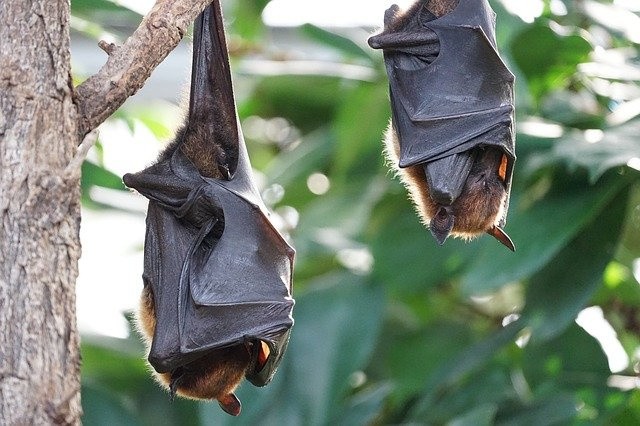
Scientists are studying immunity responses in bats to devise new COVID-19 therapies to cure SARS-CoV-2 in humans. To attack the infection by observing components that allow it to store SARS-CoV-2 without getting sick like humans is seen as the missing link.
Despite the development of vaccines, they are compounded by the need to protect the majority, defeating its purpose. To stop the surge of the virus besides vaccines are what immunologists are trying to figure out. Bats that carry the viruses as a living reservoir might hold the key to answer.
Bat immune responses to SARS-CoV-2 to be studied
To finally unravel how the virus operates in bats that have a remarkable response to blunting the coronavirus in its system. The approach to making vaccines have been different, and that might be the problem, reported Scitechdaily.
Developing new ways to destroy the SARS-CoV-2 via ways that have not been tried yet is entirely uncertain. Professor Marcel Nold and Associate Professor Claudia Nold from Monash and Hudson Universities in Pediatrics and Medical research lead the study together with teams from Australia and China studying how ill-equipped human immunity is to the contagion.
Study aims to stop SARS-CoV-2 contagion
On December 19, the SARS-CoV-2 with the first strain has evolved as the Alpha, Beta, and finally the Delta that has picked up nifty adaptation infection host after host. Allegedly, the Delta will be more infectious with its evolved parts noted by Professor Nold, cited National Geographic.
Strains like the Delta are as deadly as its alpha version, which is why more curative methods based on bat immune responses are needed to keep pace if more mutant strains of COVID-19 will be verified and discovered.
Study authors say stopping more extensions of the coronavirus or helping patients' immune systems cope and defeat the contagion is the goal. Although finding a solution for SARS-CoV-2 is not attainable with current knowledge and methods, Professor Nold added finding the best treatments applicable to humans that aren't detrimental to health. Anything that will improve the way the virus is managed is a plus in the fight against it.
Human immunological response to be adapted from flying mammals
Flying mammals like bats have less susceptibility to this disease, which is an adaptation that controls pathogens more effectively. If the mystery of their immunity is decoded, it will be the answer to save lives, noted Eurekalert.
It would be prudent to study bats extensively in the meantime and know how it keeps itself healthy despite the deadly SARS-CoV-2. Another goal of the study is to keep devising a method for the subsequent pandemics to follow after the current one.
The study discovered that the common ancestor of the SARS-CoV-2 was first seen in flying mammals about 40 to 70 years ago, with the species is likely to be a bat. Infection can be spread in these mammals populations, but nothing affects them in comparison to humans. For example, animals have immunity in their lung tissue against few infections.
While bats can infect each other with SARS-CoV-2, they show no clinical effects nor show the same issues in the lungs that impact humans so severely. Scientists connected the study to plan curative methods like adapting the human immunological response like the bat immune response with all the associated biological reactions to the COVID-19 contagion.
Related Article : COVID-19 Mutations Not Caused By Vaccines, Experts Say Increase of Infected People Results to New Variations
© 2025 HNGN, All rights reserved. Do not reproduce without permission.








